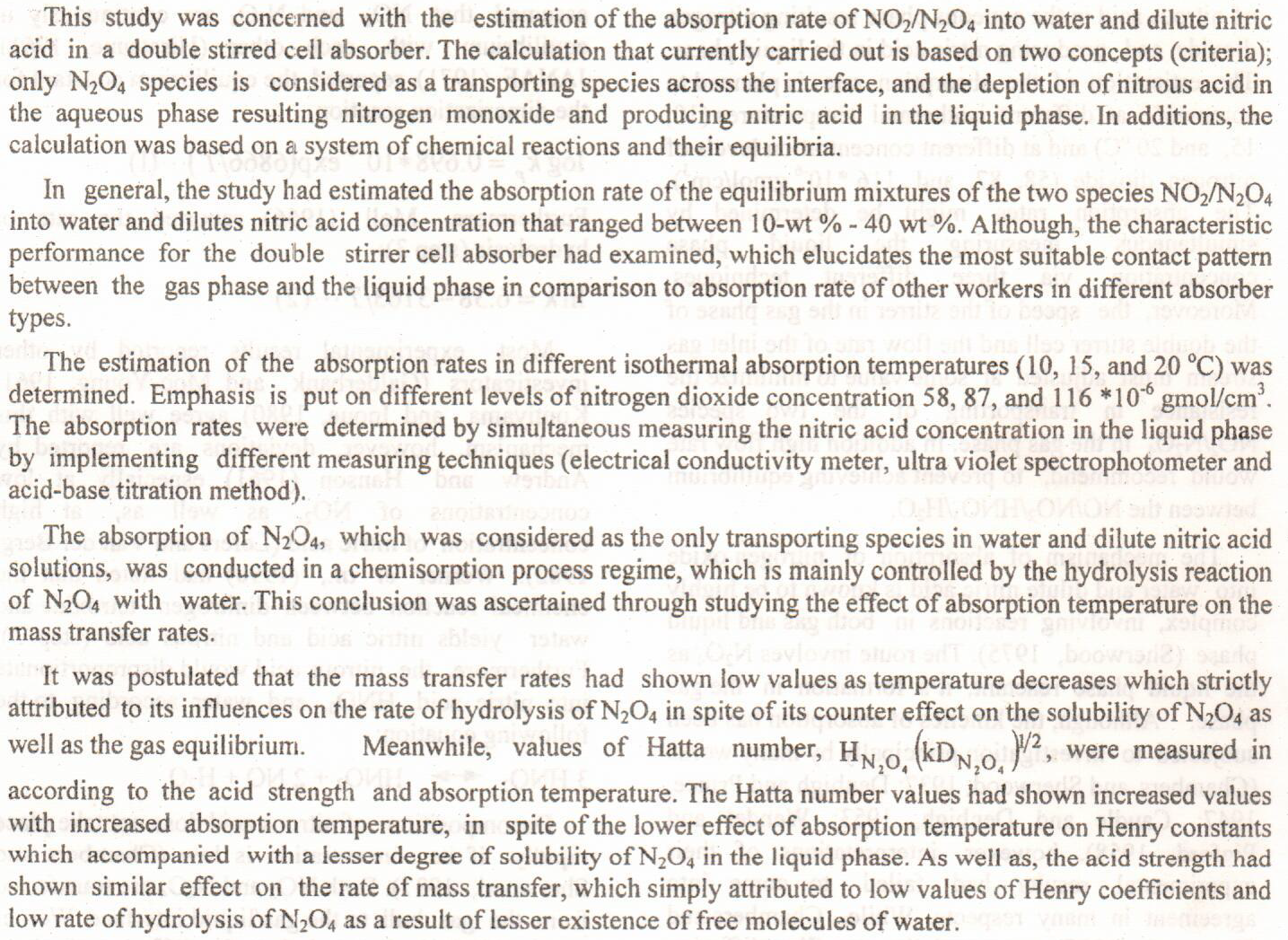
Unused and expired pharmaceutical drugs are a novel type of organic corrosion inhibitor. They are less expensive, more effective, and less harmful than conventional organic corrosion inhibitors. This study investigated the effects of concentration, adsorption mechanism and thermodynamic parameters of enalapril malate (ENAP) as a corrosion inhibitor for carbon steel in a saline solution (3.5 % NaCl). The polarization method was used to determine the corrosion rate and inhibition efficiency. Field emission scanning electron microscopy (FE-SEM) and atomic force spectroscopy (AFM) were used to investigate the surface morphology and topography of carbon steel after immersion in both uninhibited and inhibited media for 24 h. Fourier transform inf
... Show More (1)
(1)
This study was conducted to evaluate the bottled water quality for the six-producing companies in Baghdad city, where selected six brands which are the most marketed in the Iraqi market, especially in Baghdad, where taking the proper amount of bottled water in September 2015 and included the studied characteristics (EC , pH ,TDS, Turbidity, Ca+2, Mg+2, Cl-, No3-, So4-2, HCO3-, Na+ and K+) in addition to the total population of bacteria aerobic and coliform, and compare the results with the standard specifications of the Iraqi and the World Health Organization (WHO), as well as to compare the results of sampling specifications mentioned on the packaging by the producing companies. The results showed the presence of high significant differ
... Show MoreTanuma and Zubair formations are known as the most problematic intervals in Zubair Oilfield, and they cause wellbore instability due to possible shale-fluid interaction. It causes a vast loss of time dealing with various downhole problems (e.g., stuck pipe) which leads to an increase in overall well cost for the consequences (e.g., fishing and sidetrack). This paper aims to test shale samples with various laboratory tests for shale evaluation and drilling muds development. Shale's physical properties are described by using a stereomicroscope and the structures are observed with Scanning Electron Microscope. The shale reactivity and behavior are analyzed by using the cation exchange capacity testing and the capillary suction test is
... Show More (6)
(6)
 (6)
(6)
Investigating the thermal and electrical gains and efficiencies influence the designed photovoltaic thermal hybrid collector (PVT) under different weather conditions. The designed system was manufactured by attaching a fabricated cooling system made of serpentine tubes to a single PV panel and connecting it to an automatic controlling system for measuring, monitoring, and simultaneously collecting the required data. A removable glass cover had been used to study the effects of glazed and unglazed PVT panel situations. The research was conducted in February (winter) and July (summer), and March for daily solar radiation effects on efficiencies. The results indicated that electrical and thermal gains increased by the incre
... Show More (7)
(7)
 (5)
(5)
Background: The longevity of any prosthesis depends on the materials from which it was fabricated, that is why, defects in the material properties may reduce the service life of prosthesis and necessitate its replacement. The aim of this study was to evaluate the effect of adding different concentrations of Polyamide-6 (Nylon-6) on the tear and tensile strength of A-2186 RTV silicone elastomer. Materials and Methods: 80 samples were fabricated by the addition of 0%, 1%, 3% and 5% by weight PA-6 micro-particles powder to A-2186 platinum RTV silicone elastomer. The study samples were divided into four (4) groups, each group containing 20 samples. One control group was prepared without PA-6 micro particles and three experimental groups were pr
... Show More (10)
(10)
 (10)
(10)

